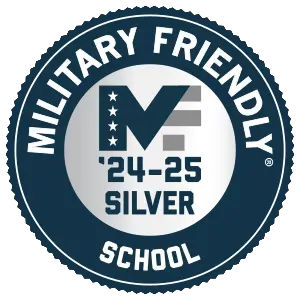Do You Need a Degree to Be an LPN?
 Practical nursing is a rewarding career choice for those who find helping others is an important and necessary part of life. It’s a ground-floor opportunity to bring wellness to your community while enjoying a positive work-life balance. And the better news is that you don’t need a degree to get started. In just under a year, you’ll be making a difference on the front lines of medicine.
Practical nursing is a rewarding career choice for those who find helping others is an important and necessary part of life. It’s a ground-floor opportunity to bring wellness to your community while enjoying a positive work-life balance. And the better news is that you don’t need a degree to get started. In just under a year, you’ll be making a difference on the front lines of medicine.
Do You Need a Degree to Be an LPN?
A degree is a must for most healthcare careers, but all you need to become an LPN is a vocational school diploma. The training of choice for practical nurses nationwide is efficient and affordable.
Students graduate work-ready and well-prepared to take the state licensing exam. Pass, and you’re ready to send out resumes for entry-level positions.
An excellent option if you can’t stop working for the many years it takes to go to a traditional college, vocational school LPN programs can take less than a year to complete, and they come with job placement benefits. Lifestyle-friendly, vocational institutions tackle education the same way you’ll approach nursing.
What Do You Learn During an LPN Diploma Program?
LPN programs are quick but comprehensive. Programs blend classroom learning with laboratory simulations and real-world clinical experiences. You’ll learn to take care of others and yourself in courses such as:
Anatomy and Physiology
Anatomy is the study of body structure, the fourteen systems that make up the human body. Physiology is the study of how they’re integrated through complex biological and electrochemical processes. Inseparable, they’re the foundation of nursing practice.
In this two-part course, you’ll start with the basics and learn more as you study the fundamentals of nursing and the many stages of human growth and development. Topics include the cardiac, pulmonary, endocrine, respiratory, digestive, urinary, reproductive, and lymphatic systems plus the biochemical process that govern them.
Clinical Judgment for Practical Nurses
Nurses are decision-makers, so understanding the reasons they make a judgment call is as important as how they respond to it. As an LPN, you’ll need to recognize unsafe situations, prioritize tasks, triage care, and identify emergencies.
In this class, you’ll develop the critical thinking skills necessary to assess these clinical situations and come to sound conclusions, concepts you can also apply to yourself to prevent burnout in a high-responsibility field.
Fundamentals of Practical Nursing
In another two-part course, you’ll get your feet wet right away by delving into the principles of nursing as an art and a science. Topics include the nursing process, workplace safety, practical interventions, and communication techniques.
You’ll learn to do more than treat illness, you’ll embrace patients as whole people, promoting physical, emotional, and psychosocial wellness.
Practical Nursing Care of the Elderly
It seems counterintuitive to begin human growth and development study with the elderly. However, it’s in the senior population that we best see the effects of aging and the consequences of health decisions both good and bad.
In this course, you will discuss issues and trends affecting older adults. You’ll compare and contrast normal physiological changes related to aging with the common disease processes that affect seniors. Topics include the physiological, psychological, emotional, social, cultural, and spiritual needs of aging adults. You’ll also examine your personal views about aging and how caring for the elderly impacts your worldview.
Calculating Dosages for the Practical Nurse
Administering oral medications is a large part of an LPN’s practice, so understanding how drug dosages are calculated is imperative. Concepts covered include universal terminology and abbreviations, weights and measures, metric conversions, and math principles, including fractions, ratios, decimals, and percentages.
You’ll learn to interpret conditional medication orders, read drug labels, and calculate weight-based dosages. Patients’ rights and your responsibilities as an LPN are key discussion points.
Psychology
Psychology is the study of the human mind. An introductory course covers thinking, learning, brain development, personality and social behavior, and psychiatric disorders. Later, you’ll apply what you learn here to mental health practice.
Practical Nursing Care of the Reproducing Family
LPNs support reproducing families by meeting their physical and emotional needs as a unit. This class not only covers childbirth and maternity care, but it also addresses the needs of fathers, siblings, and other caregivers.
Topics include conception, fertility, pregnancy, labor and delivery care, preventive health, healthcare, home safety, and nutrition. The knowledge gained from these reproductive health topics combined improve outcomes for children, families, and communities.
Practical Nursing Care of Children
The needs of children from birth to adolescence are the focus of this course. Content centers on human growth and development theory. You’ll learn how to recognize the unique physical, emotional, and psychosocial needs of all age groups and how they affect individuals.
IV Therapy for the Practical Nurse
A practical nurse’s role in IV therapy is defined by each state and varies by institution, but whenever IV therapy is part of a patient’s treatment plan, LPNs need to know how to monitor its effects.
In this course, you learn how to start and care for an IV. Building on your knowledge of dosage calculations, you’ll determine drip rates. Topics include high-risk medications, potential adverse effects, therapeutic monitoring, and interactions.
Practical Nursing Care of Adults I & II
This two-part class covers the nursing principles applicable to adults. From preventive medicine to end-of-life care, you’ll learn how to manage the biological, psychological, social, and spiritual needs of culturally diverse patients. Topics include:
- Hygiene
- Mobility
- Oral care
- Skin integrity
- Sensory impairments
- Fluid balance
- Elimination
- Infection control
- Communication
- Patient privacy
- Cultural diversity
- Health promotion
- Emergency care
Mental Health Practical Nursing
Mental Health Practical Nursing offers insight into managing patients challenged by mental health disorders from anxiety and depression to delirium and psychoses. During this class, you will dive deeper into psychology, investigating behavioral phenomena, addiction, group dynamics, and psychiatric versus cognitive disorders.
You’ll learn how to keep patients with mental illness safe while respecting their autonomy and helping them navigate life with both physical and emotional concerns.
Preparation for Practical Nursing Practice
In the classroom, LPNs are learners. In practice, they’re teachers. It’s an exciting yet demanding role. However, there’s a gap between book learning and real-world nursing that sometimes intimidates new graduates. Forty-four weeks of training isn’t a lot of time in which to prepare mentally to be a leader and advocate.
However, vocational school programs help ease the transition by exploring topics that are important to nurses. You’ll learn from seasoned instructors who know the ropes. Topics include professionalism, time management, interpersonal communication, and self-care.
Burnout is a problem in the medical profession. So, nurses who provide patients with person-centered care must also learn to advocate for themselves with the help of nurse educators and the medical community.
Final Thoughts
Getting a degree is a worthwhile goal, but it’s not practical for everyone. So, why put your dreams on the back burner when a vocational school nursing program offers you the career you want and a foundation upon which to continue your education? When it comes to education, only by doing something for yourself can you do something to help others.
Want to Learn More?
The Practical Nursing (PN) Program provided by the Ohio Business College is 44 weeks or four quarters in length. The program covers a combination of theory, nursing skills lab, simulation lab, and clinical experiences. Once you graduate from the PN program, you will be fully qualified to write to the NCLEX-PN® to become licensed as an LPN in the state of Ohio.
Contact us today to learn more about our LPN program.

